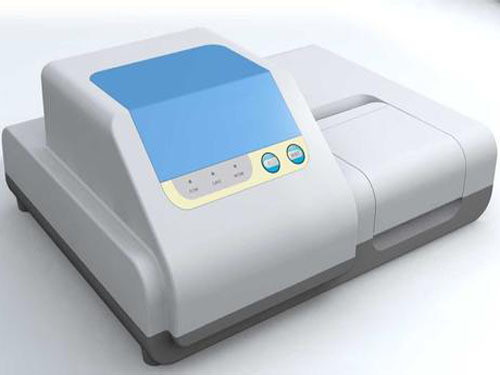
The enthusiasm of global analytical instrument suppliers for the Chinese market remains high. The largest instrument companies are improving their capabilities in the Chinese market, while smaller instrument companies and managers are investing more time to understand this complex and ever-changing market. This is the information obtained from exhibitors of the Munich Biochemical Exhibition held in Shanghai in late September.
Compared with the United States, Europe, or Japan, although China is still in the early stages of scientific development, it is an important market for analytical instruments. According to Martin Leibing, Project Export Manager of Spectaris, Germany, for small and medium-sized German instrument manufacturers, China is the second largest export market after the United States. With an annual growth rate of 20%, China may soon surpass the United States and become the largest export market for German companies.
You can feel the dominance of foreign analytical instrument manufacturers in the Chinese market by walking freely at the crowded Munich Biochemical Exhibition. In general, Chinese companies produce low-end products such as simple laboratory robots or ordinary gas chromatographs. Foreign companies monopolize the high-end instrument market.
Spectabris Martin Leibing pointed out that Chinese companies are improving the quality of their instruments. However, Levi Han, Marketing Manager of Hamilton China, said that Chinese companies still face many obstacles in manufacturing many advanced products. For example, Hamilton provides liquid handling systems, extremely accurate pumps and syringes, which China cannot manufacture.
However, Levi Han insists that almost no local competitors should not think of China as a simple market. When manufacturers sell instruments to hospitals and the clinical market, they face complex regulations.
For example, China recently authorized the sale of DNA sequencers as medical devices. Levi Han explained that regulators are worried that this technology will be used by some unscrupulous doctors to convince patients to conduct unnecessary and expensive tests.
However, regulations have not reduced the enthusiasm of foreign instrument manufacturers for the Chinese market. PerkinElmer has greatly expanded the scale in China and now it can provide sales and services in every province in China. According to Nam-Hoon Kim, president of PerkinElmer Greater China, since 2011 PerkinElmer's number of employees in China has doubled to 1,000.
The concept of people believes that instrument manufacturers are so concerned about intellectual property rights violations that they will not be manufactured in China. Nam-Hoon Kim thinks this is not the case. Major instrument manufacturers are keen to expand their production in China. “Government preferential policies have induced companies not only to produce in China but also to design products in China,†he added. “The legal protection against intellectual property infringement has improved in recent years.â€
Smaller instrument manufacturers do not have the ability to set up companies in China, so they have to rely on distributors. “For these smaller companies, choosing a competent local partner is crucial,†said Martin Leibing of Spectaris. “Many German managers came to Shanghai to attend the Munich Biochemical Exhibition in order to find new distributors or strengthen their relationship with their existing distributors.â€
"A good distributor can solve most of the technical problems without having to involve the manufacturer," said Hairong Zhang, director of Analytical Instruments of China. Tianmei China is headquartered in Hong Kong and distributes instruments manufactured by Hitachi and several other small companies in China.
Hairong Zhang said, “Powerful distributors are also the source of funds for foreign companies. Dealers tend to intervene when instrument manufacturers want Chinese customers to pay earlier. Good distributors will also maintain inventory of expensive instruments. And it's the cost."
According to Hairong Zhang, another important function of dealers is to help handle some of the red tape around the instrument procurement. For example, government agencies and public research institutes need to purchase “Made in China†products under administrative pressure, and also need to complete many paperwork when purchasing foreign manufactured products.
However, Tianmei also helped its customers purchase instruments made in China, including those manufactured by Tianmei itself. Tianmei's subsidiary, Shanghai Tianmei, provides gas chromatographs and other products. Tianmei's application engineer Chenkang Lu claims that Tianmei's instruments can compete with foreign brands in terms of performance and durability. “The software of foreign instruments may be better, but our main obstacle is that people feel that our instruments are not so good,†he said. "Currently, most of Tianmei's chromatographs are sold in China."
Although major Western companies currently dominate the Munich Biochemical Exhibition, as the Chinese local manufacturer, Tianmei may be an early warning – this dominance cannot always exist.